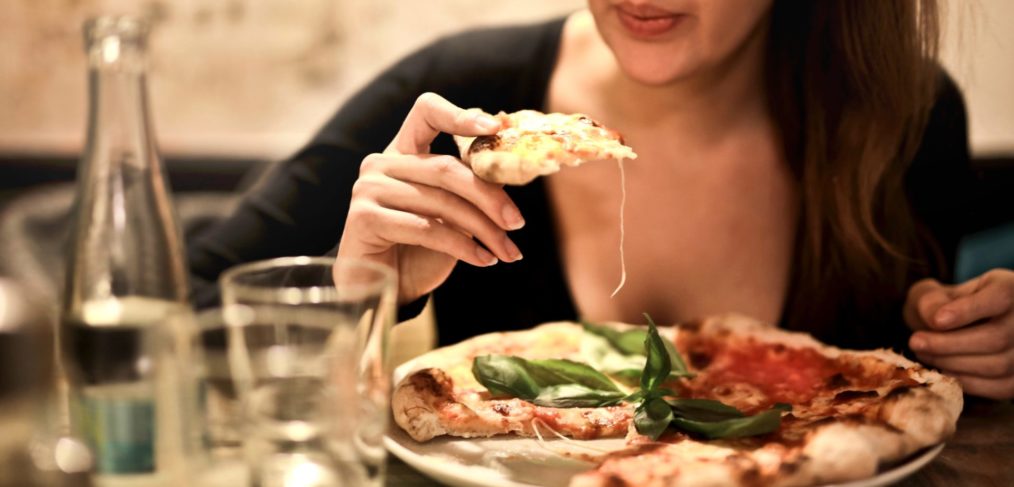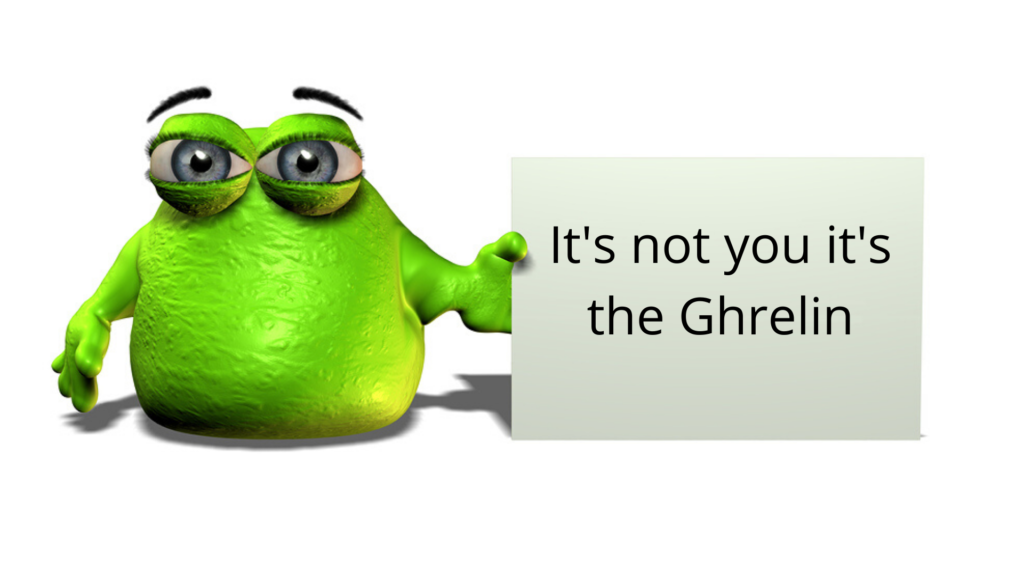
Struggling with sweet cravings and not sleeping?
Ghrelin makes you hungry
We’re a few weeks into our social distancing and isolation and you may well be finding that you’re reaching for the sweets, or extra pizza!
Sleep may not have been a problem for you, but with the rise in uncertainty, many more people will be struggling with anxiety, panic attacks and sleep disturbance.
At times like this, you may struggle with choosing healthy options and go straight for the carbs.
You may think it’s worry, or boredom, but there’s a scientific reason why you’ve got unhealthy cravings when you’re not sleeping well.

Leptin and Ghrelin are hormones that control your appetite. Ghrelin is the hormone that makes you hungry.
One single night of sleep deprivation can increase Ghrelin levels, research says.
When you’re full, Leptin will let your brain know that it’s time to stop eating and that the body should start burning calories.
Leptin also triggers the brain to let the thyroid know what it needs to do with the energy. Whether it should store it, or use it.
When you sleep well, the leptin levels increase letting your body know that it doesn’t need to eat.
When you’re sleep deprived, leptin levels will decrease and your brain will think it’s not got enough energy…
…so Grehlin makes you feel hungry
Not only will you eat more, but your body will try and store more energy as fat and you’ll start craving the naughty stuff.
If this is happing to you, take steps to improve your sleep
- Rhythms and rituals are fundamental. Your body likes to do certain things at certain times of day and is goverened by your internal body clock. Your internal body clock is regulated by the 24hr light-dark cycle of nature. Even if you’re off work, go to bed at the same time every day and get up at the same time every day.
- To help your body clock stay balanced, you need to get out in natural daylight as early in the morning is possible. When the light hits the retina, it lets your brain know that it should reduce the melatonin and increase the serotonin. As soon as you wake up, if you can’t get outside in the daylight stand at the window and look outside while drinking a glass of water.
- When light reduces in the evening, the evening hormone , melatonin, rises and serotoinin decreases. Melatonin lets your body know that it will be time to sleep soon and starts turning everything down. Turn the lights down in the evening so the artificial lighting doesn’t interfere with melatonin production. Romantic lighting is great!
- Blue light inhibits melatonin production, so limit screen time in the evening.
- Exercise is important, so make sure you either go out for a walk or do some yoga in the house.
- Always wind down in the evening with some breath or meditation practise.
Try this short evening meditation at bedtime.

One comment